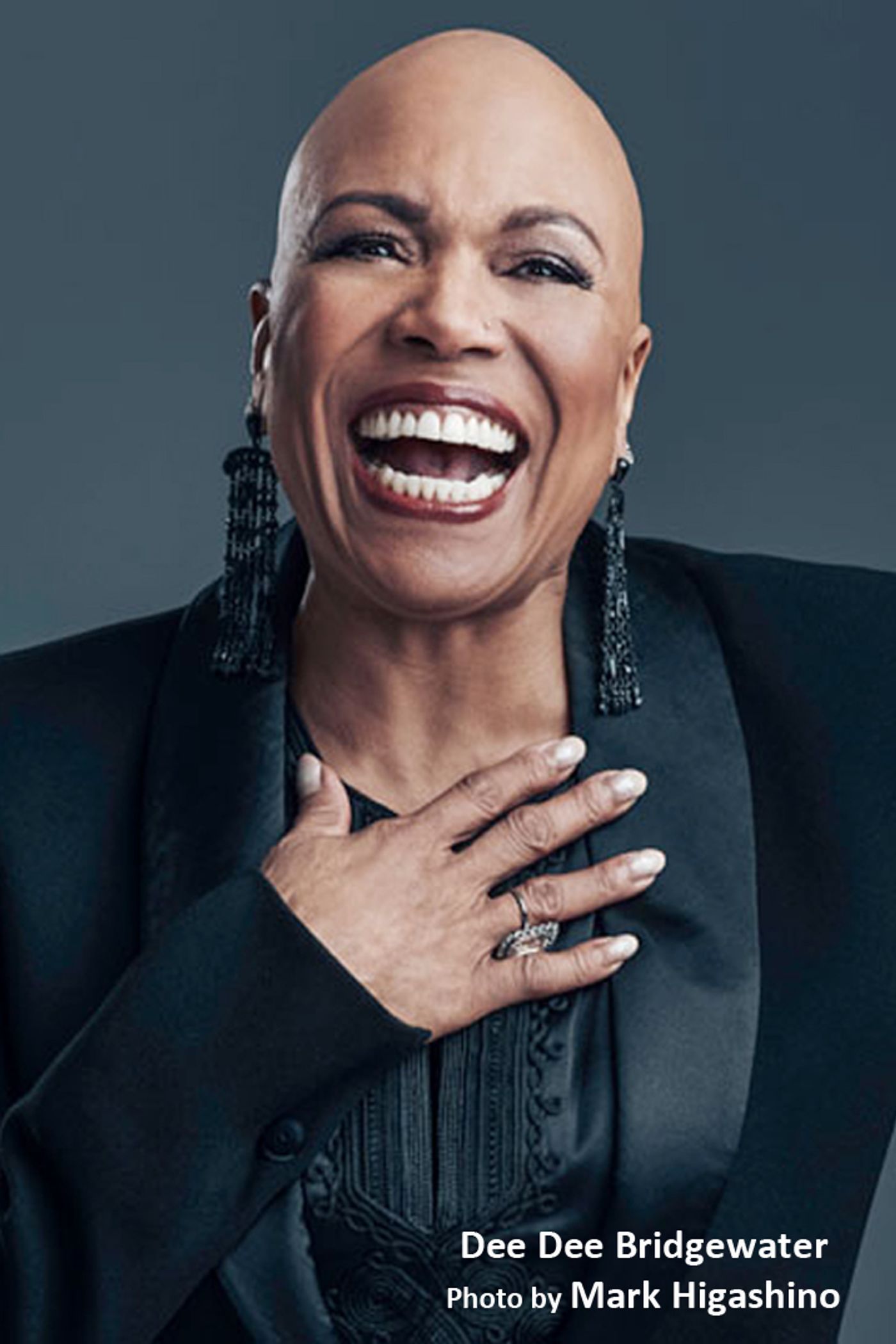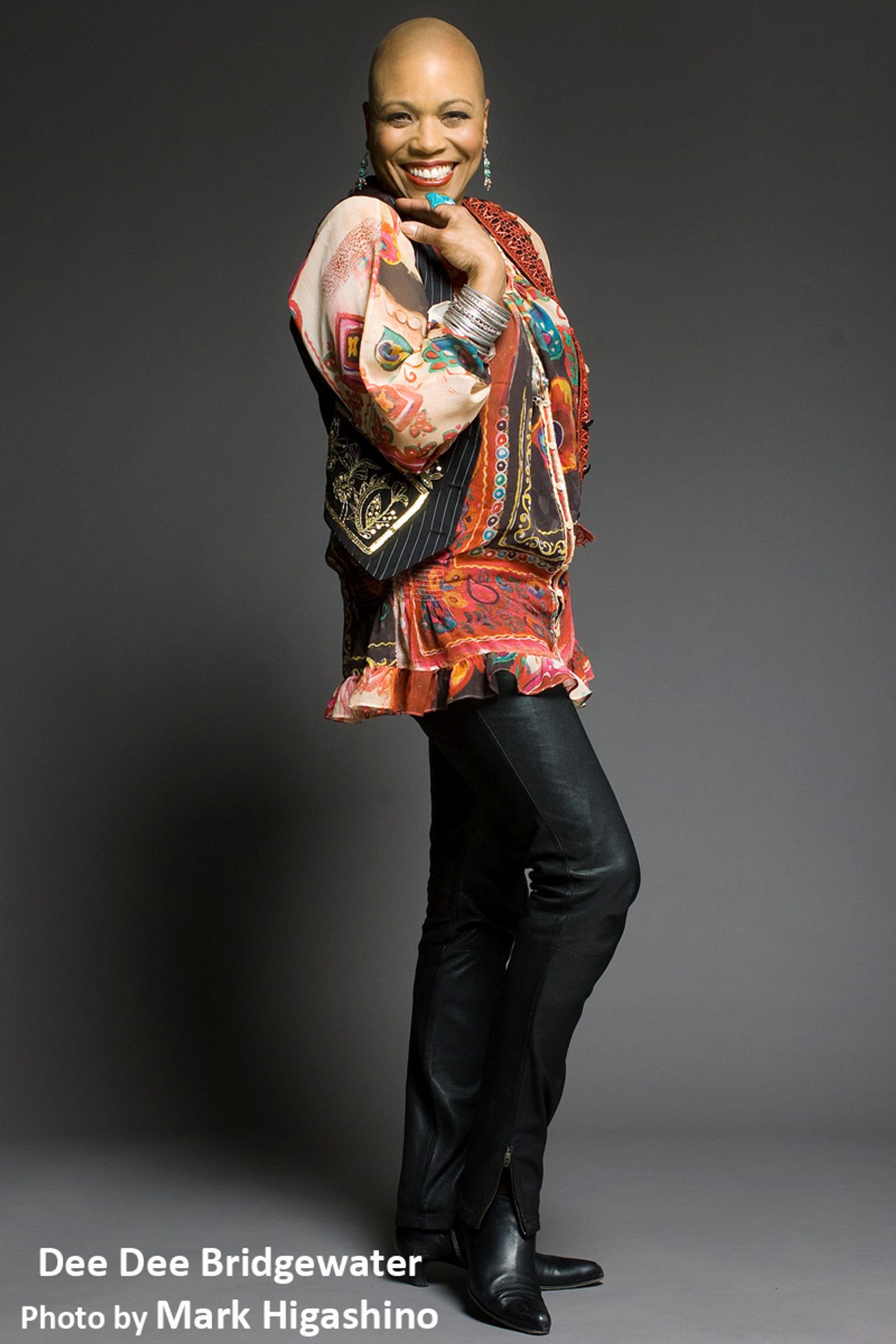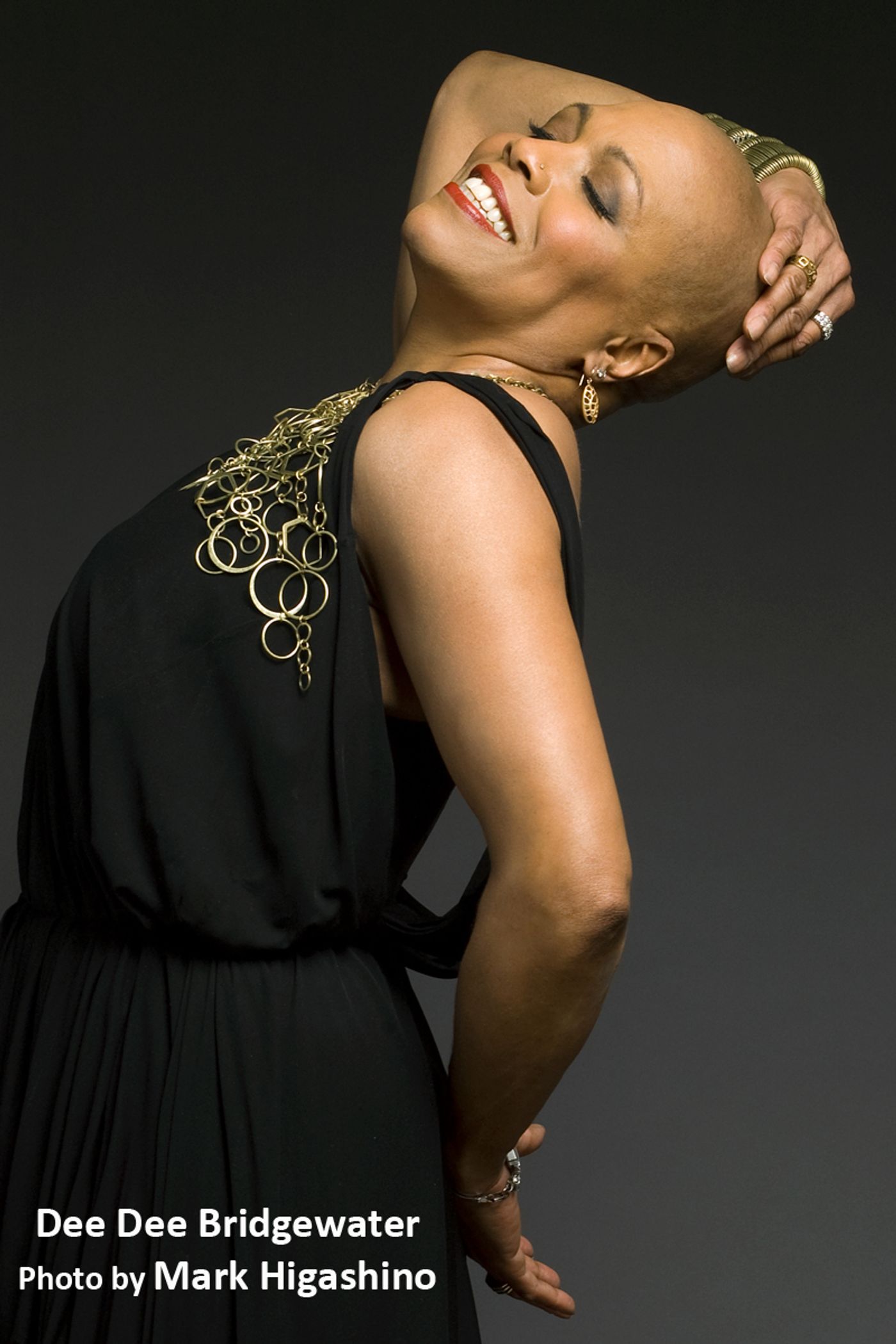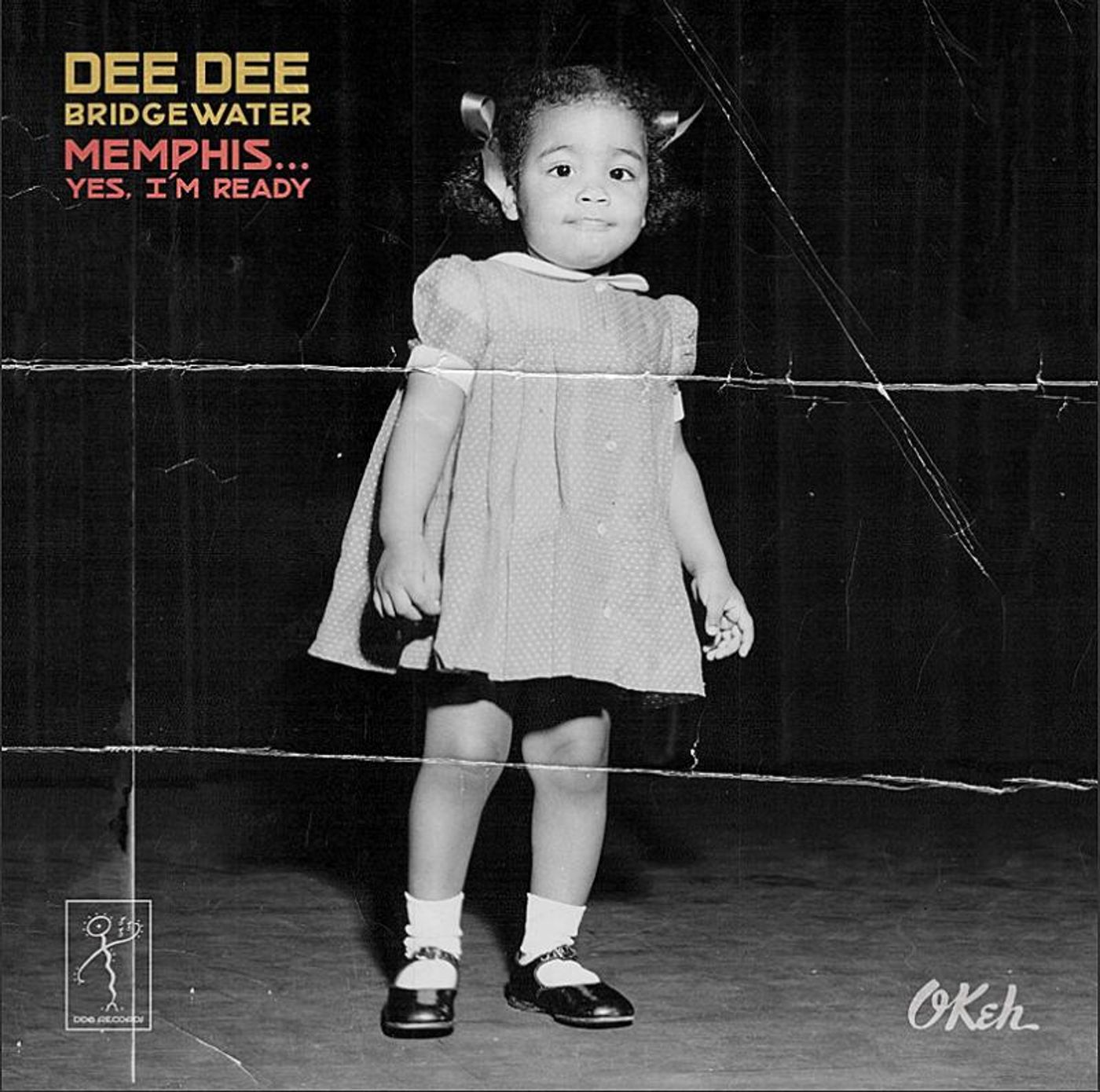Interview: Dee Dee Bridgewater Talks MEMPHIS From Her SOUL- No PHONY She!

Lauded jazz vocalist Dee Dee Bridgewater, accompanied by THE MEMPHIS SOULPHONY, will be bringing her latest show MEMPHIS: YES, I'M READY, based on her latest musical release Memphis: Yes, I'm Ready to The Wallis for one night only March 23, 2019. The Tony and Grammy Awards winner was bestowed with the National Endowment for the Arts Jazz Masters Fellows Award in 2017. The most warm and delightful Ms. Bridgewater managed to entertain and enlightened me on the phone for an informative, heartfelt forty-five minutes.
Thank you for taking the time for this interview!
What was your process in whittling down the plethora of available songs for your latest CD Memphis: Yes, I'm Ready, which is the basis of your show?
I was looking for songs that I had listened to when I was a teenager growing up in Flint on the radio station out of Memphis called WDIA. I lined up about thirty songs. After that, it was just about finding the songs that I felt went together rhythmically speaking, and just the feeling of the songs. I knew that I had to have B.B. King, because he was someone I was very close to. I had to have Al Green, because we were in Royal Studios, which he built with all the hits he , and all the albums Willie Mitchell produced with him. I'm working with Willie Mitchell's son. I had to have "Giving Up," the very first song that I heard on that radio station, Gladys Knight and the Pips' first big hit. From there, I thought I should include something by Elvis Presley. He is Mr. Memphis. I wanted to do "Hound Dog," but I wanted people to know that Big Mamma Thornton did it first, so I did her version. I am probably going to be doing a second volume of this Memphis project.
That's just what I was going to ask you - are there enough songs you didn't choose to include to make a Yes, I'm Ready Again?
There we go, you gave it a name! Yes, I'm Ready Again! Thank you!
With the variety of great titles of your chosen songs, what made you chose "Yes, I'm Ready" as your title track?
I don't know how that happened. I really can't tell you. I just wanted to call it Memphis. Then my daughter Tulani thought of calling it Yes, I'm Ready. It was a collaborative kind of thing, a family affair.
When did you form Memphis SoulPhony? In 2017 or before?
2017, when I decided to take this repertoire out. I created the band. The nucleus of the band is from Memphis. The original background singers were from Memphis. It was a Memphis band, if they weren't from Memphis, they were living in Memphis or had lived in Memphis. It had to be Memphis-based band. I felt that those were the musicians who knew this music the best. That's where all this music was coming out of. So I thought it would behoove me to have jazz musicians try to play some R&B and blues. It's a totally different feel, as my jazz players found out when they tried to play it. No, that's jazz! Sorry, guys!
What led up to you forming your own DDB Records in 2006?
It was actually at the suggestion of the gentlemen that were running Universal. I had been producing myself since 1993, and I was still living in France. I'd gone from Polydor, Polydor was taken over by Universal, Verve first, then Verve was taken over by Universal. Lord have mercy! All the mergers and the take-overs, and the this and the that - the music business! There were two gentlemen who went from each label as it would take over the prior label - Jean-Philippe Allard and Daniel Richard. Jean-Philippe said, "Dee Dee, you've been producing your albums and your albums are all successful. We think it's time you do your own label." It's really a vanity label. I own the catalogue. It's all under my DDB Records banner. They distribute it whichever label I sign with for license agreement, then they do the distribution. But I own all of the product. It's having a label without having a full-fledged label where I would have to employ people and do a lot of numbers and stuff. I didn't want that, although I did have someone that was interested in backing it and offering me two million dollars to start it, back in the 90s, that was big.
That's not a small sum right now, either.
 I didn't want that headache. I like the idea of producing and mentoring artists, but not running a label. I could take a place at a label, an executive position, but I surely wouldn't want the job of running it. And today, we don't even know what labels are any more.
I didn't want that headache. I like the idea of producing and mentoring artists, but not running a label. I could take a place at a label, an executive position, but I surely wouldn't want the job of running it. And today, we don't even know what labels are any more.
Would I be correct is picking Ella and Billie as your early singing idols?
No, you would not. My idols were Nancy Wilson and Betty Carter. I didn't have wallpaper. I had Nancy Wilson. My father would clip articles he'd seen and bring them to me. Her album covers, I would open up the jacket and tape it to the wall. I wanted to grow up and be like Nancy Wilson. And then I wanted to be this fiercely independent jazz singer like Betty Carter. I wanted to have the glamour and the sophistication of Nancy, and the freedom of expression and being-her-own-boss like Betty Carter.
I stand on the shoulders of Ella, and Sarah and Billie. Those were the precursors, and those were the women I was always likened to throughout my career. And when Ella Fitzgerald died, and no one was doing anything; I had the bright idea of doing this tribute album to her, Dear Ella. Of course, I called the label and said, "I'm going to do it." They said, "Great!" The next day, I said, "Have you lost your mind? The critics are going to slaughter you!" I called them up and said, "I can't do it. I'm not doing it." They said, "Oh, no. It's too late. We all think it's great."
Well, hmmmm? You only won a Grammy for it, didn't you?
The album won two Grammys. As the producer, I can say I won two Grammys, because I produced it. The other Grammy was for Best Arrangement accompanying a vocalist. That was the song "Cotton Tail."
How old were you were you realized Matt the Platter Cat you were listening to on the radio was your father Matthew Garrett?
He was on the radio before I was born, 1949-50. I didn't know that my father was a deejay on that station until Charles Lloyd, who was one of my father's high school students told me. My father taught music at one of the two black high schools at the time, Manassas High School, which has an incredible amount of very successful musicians that have come out of it: Isaac Hayes, Booker Little, George Coleman, Frank Strozier.
When did Denise Eileen become Dee Dee?
I was always Dee Dee. Growing up in Memphis, my mother said kids couldn't say, "Denise." So they named me "Dee Dee." So I've always been Dee Dee. I was only Denise when I was getting in trouble with my mother. If she said, "Denise!" I was really in trouble. All of my friends in Flint still call me Denise when I see them. I always felt more like a Dee Dee. Dee Dee felt like a more acceptable person. Denise felt like someone that was a little snooty, even though I was named after the French actress Denise Darcel. My mom named my sister and I after actresses. My sister's first name is Rhonda after the actress Rhonda Fleming.
And Eileen was my paternal grandmother's first name.
You, began singing at the age of sixteen, and toured with your college jazz band to the Soviet Union in 1969. What that an exciting trip for the teenage you?
It was still the Soviet Union, it was not Russia. It was communist. KGB was very prevalent, a little scary. We were followed everywhere. That was the year of the big college unrest, Kent State. So they thought American students were going to be disruptive to young people in the Soviet Union. Any meetings between us students and Russian students had to be clandestine. The meeting of jazz students were all clandestine. None of it was supposed to be allowed. Like in the movies. I remember in Moscow, we met in a double basement, which means you had to knock on a wooden door, a slat would slide back. It was a tiny slat. Somebody would look, open the door, and they would push you in. You'd go down these interminable stairs (it seemed like that for me when I was young) and then you get to a landing, and then you'd go down a second set of stairs, so you were like in a second basement.
 You lived in Paris for a number of years.
You lived in Paris for a number of years.
24 years to be exact.
When you were singing in Paris, what kind of music were you doing?
I was doing jazz.
Was jazz new?
No, jazz was loved. Miles Davis had been to France. Quincy Jones had been to France. A lot of people had been to France. There was a long history of jazz in France.
How did an established jazz singer...? Am I correct in saying you're a jazz singer? Or are you a blues singer?
I am a jazz singer. I am a NEA Jazz Master. I can sing blues, I can sing opera , I can sing whatever. I have a very flexible voice and I have sung opera.
So, here's the question - How does an established jazz singer get approached to be Glinda the Good Witch in a Broadway musical?
I wasn't established when I did THE WIZ. I was just starting out. I had only been in New York four years. I was the singer of a very famous jazz band called Thad Jones-Mel Lewis Orchestra. They had open auditions. I got a callback. Then I went on tour in Europe with the Thad Jones-Mel Lewis Orchestra. When I came back in August, they asked me to come back in. This time, it was for Glinda. I had to do a second audition and some improv for the original director Gilbert Moses. The show as it stands is Gilbert Moses' show. It is not Geoffrey Holder's show. Geoffrey got the credit. When they changed the show to what Geoffrey had wanted (20th Century Fox was the money behind the show), they said, "No! Change it back to the way it was."
But they left the credit to Geoffrey. Hmmmm??!!
There's a book on THE WIZ!
What do you remember of the evening you won the Tony Award for Best Featured Actress in a Musical?
Shocking!
You didn't think you would win?
I was shocked! I had five lines of dialogue and sang half a song.
Didn't you sing the whole song of "Believe in Yourself"?
No, I sang the reprise. They gave the whole song to the Wiz.
There really IS a whole book on THE WIZ!
Oh, there IS a book! Trust me!
What do you remember of your very first paid singing gig at sixteen (in Michigan)?
It was at some club that served dinner also. I remember I was infatuated with Dionne Warwick at the time, and she had a song out "A House is Not a Home." I sang that song. I sang with a live trio. My father would take me to rehearsal because I was only sixteen and playing with grown-up men. He was my chaperone and had to be my chaperone in the club because they served liquor. Then I won a talent show in Flint at a jazz club Motor City. Sang after Grant Green and George Benson, who was just starting out. We called me "Little Dee Dee Garrett."
 Your fifty-plus years in singing your heart out must have had quite a number of memorable moments and acquaintances. Let me name a few and you comment on them in a sentence or two, OK?
Your fifty-plus years in singing your heart out must have had quite a number of memorable moments and acquaintances. Let me name a few and you comment on them in a sentence or two, OK?
Being the lead vocalist for the Thad Jones-Mel Lewis Orchestra:
That was my music school. Everything I know about jazz today, I learned while in that band and from Thad Jones.
Inhabiting the role of Billie Holiday in LADY DAY in 1986:
I was possessed! Billie Holiday took over my body. To this day (in Billie's voice) I can talk like Billie, sing like Billie. I was possessed.
Do you do impressions of her in your show?
Every once in a while now, not as much as I used to.
Recording with Ray Charles on the song "Precious Thing" in 1989:
That was an amazing two years that I spent with Ray Charles. To sing that song all over Europe like we did, it was fantastic! He allowed me into his private world. I got to sit and dine with him. He never eats with strangers. When the gentleman who was managing me (we could say) at the time, proposed doing this duet to Ray Charles, it was after I had opened for him at Palais des Sports. As the opening act, I knew the opening was supposed to warm up the audience and get them excited for the main act. I sang songs that I thought would really get the crowd going. It was 5,000 people. I did some rock, some whack stuff, popular songs, and I did an original song that I wrote the lyrics for. Ray Charles, I met him after I came off. He took my hand, and he held my hand, and he wouldn't let my hand go. We talked for twenty minutes. Ray Charles would hold your hand and put his forefinger on your vein, so he could feel your pulse. That was how he determined if you were a good person or a bad person. And that is documented in the movie Ray. And that's what he did to me. So after that, when this "manager person" suggested a duet, he said, "I will do a duet with Dee Dee Bridgewater. You find me a good song with some good lyrics." This man did a competition where people would submit music and lyrics.
Being a United Nations Goodwill Ambassador for the Food and Agriculture Organization:
Humbling. Very humbling. First of all, to be a spokesperson for a branch of the United Nations is huge. For me, I had to find out what the Food and Agriculture Organization was, the part that I was asked to be a goodwill ambassador for.
I was attached to a specific branch of the Food and Agriculture Organization, the food outreach where they would go into villages. Whatever that village did to sustain itself, whatever its main product was, they would bring in two people from another country who did the same thing, but had learned how to do it better. These people would stay in the village and work with the villagers, women. There were co-ops that were created. After these women were able to advance their knowledge, they had to turn around and bring, each of them, a woman in. It was a co-operative. It was a beautiful thing.
I accepted, alongside Miriam Makeba, Gina Lollobrigida, and Dr. Rita Levi Montalcini - the Nobel Prize winner for her cancer research for women. We were the first four Goodwill Ambassadors in 1999. When they started these co-operatives, they gave the money to the men, the chiefs. They would go out and buy cars, clothes, jewelry. So they put it in the hands of the women. They made these villages self-sufficient, a better way than dropping food off.
What do you do to keep your vocal instrument still tuned and in pristine condition after all these years in the biz?
My voice has gotten stronger as I've gotten older. Or..., maybe I've started to use the technique of breathing from my diaphragm more as I got older. I have to get enough sleep. I drink fresh ginger tea on stage, with half a lemon, a lot of honey, and hot water. I drink that on stage for about six years now. I do not go on stage without my tea.
What advice would you today give your 16-year-old self?
To be not afraid to take chances.
What's next on your musical plate?
Doing a tour this summer with the French album that I did in 2005 J'ai Deux Amours (Two Loves Have I), originally French songs that were hits in the English version. J'ai Deux Amours came out in the United States only for a little while. The label that was distributing it went belly up. So I've got a lot of J'ai Deux Amours CDs, and I'm putting the band back together so I can go out and tour it, and sell these CDs. I really want to do that repertoire again.
Anything else planned you can share with us?
I also teach, do master classes, workshops, mentoring. I work with the Jazz Ahead program at the Kennedy Center, my second year as faculty. An intensive nine-day program starts 28th of May, every day, no day off. Intense. I was beat last year. I was emotionally whipped.
I'm also doing some dates in duo with Bill Charlap the pianist. He and his trio accompanied Diana Krall and Tony Bennett on their latest.
Thank you again for this interview! I so look forward to hearing your gorgeous pipes in person at The Wallis.
It was a lot of fun! You're so welcome, Gil.
For available tickets for Ms. Bridgewater's one-nighter March 23, 2019 at The Wallis, log onto www.thewallis.org
For tour schedule dates and ticket availability: log onto to www.deedeebridgewater.com
Videos

